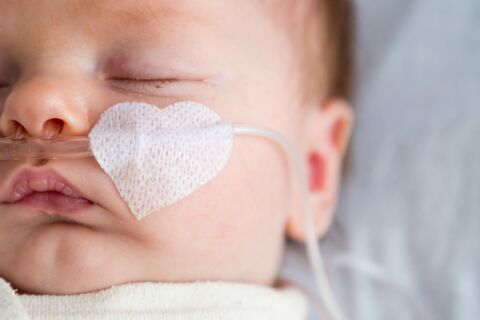
No research, no cure
In Switzerland, around 350 children and adolescents are diagnosed with cancer every year. While innovative therapies are revolutionizing the world of adult oncology, young patients are still being treated with drugs that in some cases have been around for decades. Due to the low number of cases, the pharmaceutical industry has virtually no incentive to conduct research in this area or develop new drugs. To ensure that children with cancer do not get forgotten about, paediatric oncologists and researchers are doing everything in their power to ensure that young patients have access to the best, state-of-the-art cancer therapies – a difficult undertaking as their efforts are continuously hampered by a lack of financial resources and high administrative hurdles. Stronger commitment from the federal government is essential to improve the situation. On the occasion of International Childhood Cancer Day, the umbrella organisation is drawing attention to the challenges everyone in this area is facing.
When a child is diagnosed with cancer, it is one of the worst things that can happen to a family. Luckily, tumours are rare in children and adolescents, but they are one of the most common causes of death in this age group. Even though, thanks to intense research, the chances of young cancer patients recovering have improved considerably over the last decades, there is still one child in five not surviving. What is more, 80 per cent of the survivors struggle with sometimes serious late effects of their illness and aggressive therapies. These can severely impair their quality of life and future prospects in the long term. This is why it is all the more important to intensify childhood cancer research with the aim of curing even more young patients and further reducing the therapy-related late effects. “If, in Switzerland in the future, we are aiming to treat children with cancer with the best possible, state-of-the-art therapies, research really has to be given much more financial support,” says Valérie Braidi-Ketter, CEO of Childhood Cancer Switzerland.
Children with cancer are disadvantaged when it comes to the development of innovative therapies
Because the types of cancer children and adolescents develop are different from those contracted by adults, what is needed is research that is specifically adapted to their needs. Any progress made in this area contributes to increasing their chances of survival and improving their quality of life during and after the illness. However, progress in the development of new childhood cancer therapies is slow because childhood cancer is rarer than adult cancer and is thus not very lucrative for the pharmaceutical industry. The majority of children therefore have to be treated with medicines that are actually only approved for adults and some of which were developed decades ago. “Although most of these medications are very effective, their use in the paediatric sector is simply not sufficiently researched. As they often have toxic effects, this leads to acute side effects in children who are in the middle of growing and often also to moderate to severe late effects,” explains Prof. Nicolas von der Weid, MD, Head of Oncology / Hematology at the University Children’s Hospital Basel (UKBB) and President of Childhood Cancer Switzerland. In view of the urgency of the situation, paediatric oncologists and researchers are increasingly striving to reduce the toxicity of treatments, while at the same time further increase the chances of recovery for their young patients. Children who do not respond to standard treatment or whose cancer returns are particularly dependent on new forms of treatment. Innovative therapies and new drugs are often their only chance of survival.
Childhood cancer research needs more funding
In Switzerland, non-profit research institutions and children’s hospitals are the only means of ensuring that young cancer patients also have access to medical progress. However, they are all chronically underfunded and paediatric cancer research can only be advanced through donations and third-party funding. Other European countries have long since recognised this gap in care and set up state research funds for paediatric oncology. These guarantee sufficient basic funding and make innovation happen faster. It also helps that researchers can concentrate more on their work instead of spending a lot of time raising the necessary funds. This is the only way to give children with cancer the same chances of recovery as their adult counterparts.
This year the government will be deciding about promoting research in the legislative period 2025 - 2028 with the goal of facilitating “innovation at a top-quality level in Switzerland”. It is to be hoped that people do not forget about children with cancer in the process. Because with greater financial support, the government can also make a major contribution to the basic health care of this particularly vulnerable group of patients.
We need a national cancer strategy
Fighting cancer can only become more efficient if the government, the cantons, relevant organisations and experts tackle the challenges together as part of a nationally coordinated cancer strategy. Switzerland is currently one of the few European countries in which there is no national cancer strategy even though the Council of States and the responsible commissions in the National Council have already spoken out in favour of this. Particularly in the case of rare diseases, such as childhood cancer, where the private sector sees little incentive to develop new drugs and therapies, a nationally coordinated cancer strategy can also be effective where there is a risk of gaps in care – providing that the needs of paediatric oncology are better defined in such a strategy and then supported accordingly. We can only hope that the National Council recognises the urgent need for action in the vote at the end of February.
You will find more information on Childhood Cancer Switzerland's research funding here.